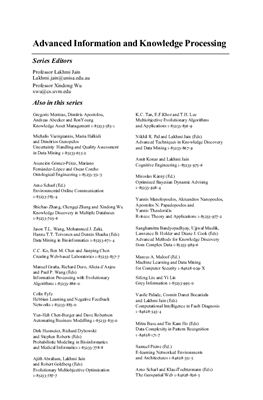Springer, 2007. - 290 pages.
Mathematical Linguistics introduces the mathematical foundations of linguistics to computer scientists, engineers, and mathematicians interested in natural language processing. The book presents linguistics as a cumulative body of knowledge from the ground up, with no prior knowledge of linguistics being assumed, covering more than the average two-semester introductory course in linguistics.
This comprehensive, reader-friendly volume offers readers a high-level orientation, discussing the foundations of the field and presenting both the classical work and the most recent results. It covers an extremely rich array of topics including not only syntax and semantics but also phonology and morphology, probabilistic approaches, complexity, leaability, and the analysis of speech and handwriting.
As the first text of its kind, this innovative book will be a valuable tool and reference for those in information science (information retrieval and extraction, search engines) and in natural language technologies (speech recognition, optical character recognition, HCI). Exercises suitable for advanced readers are included as well as suggestions for further reading and an extensive bibliography.
Mathematical Linguistics introduces the mathematical foundations of linguistics to computer scientists, engineers, and mathematicians interested in natural language processing. The book presents linguistics as a cumulative body of knowledge from the ground up, with no prior knowledge of linguistics being assumed, covering more than the average two-semester introductory course in linguistics.
This comprehensive, reader-friendly volume offers readers a high-level orientation, discussing the foundations of the field and presenting both the classical work and the most recent results. It covers an extremely rich array of topics including not only syntax and semantics but also phonology and morphology, probabilistic approaches, complexity, leaability, and the analysis of speech and handwriting.
As the first text of its kind, this innovative book will be a valuable tool and reference for those in information science (information retrieval and extraction, search engines) and in natural language technologies (speech recognition, optical character recognition, HCI). Exercises suitable for advanced readers are included as well as suggestions for further reading and an extensive bibliography.

